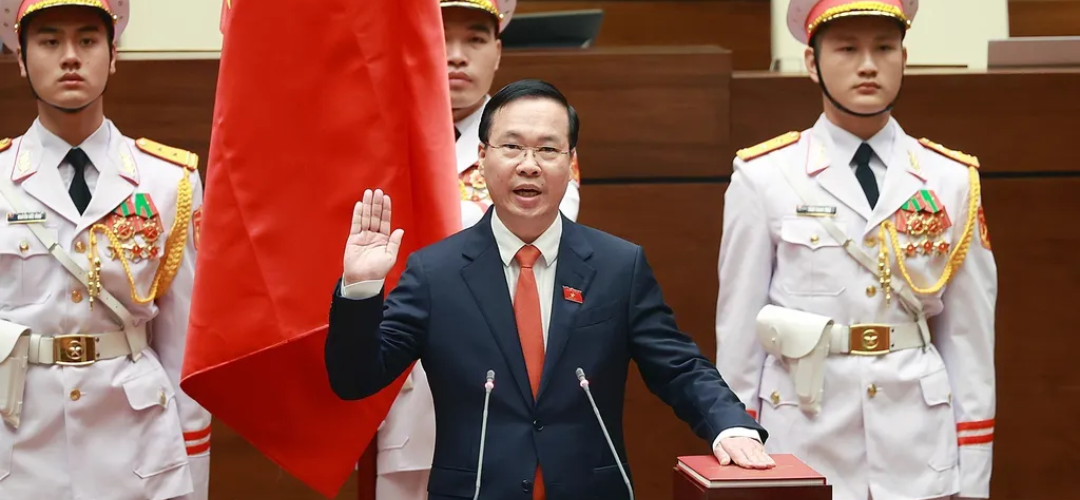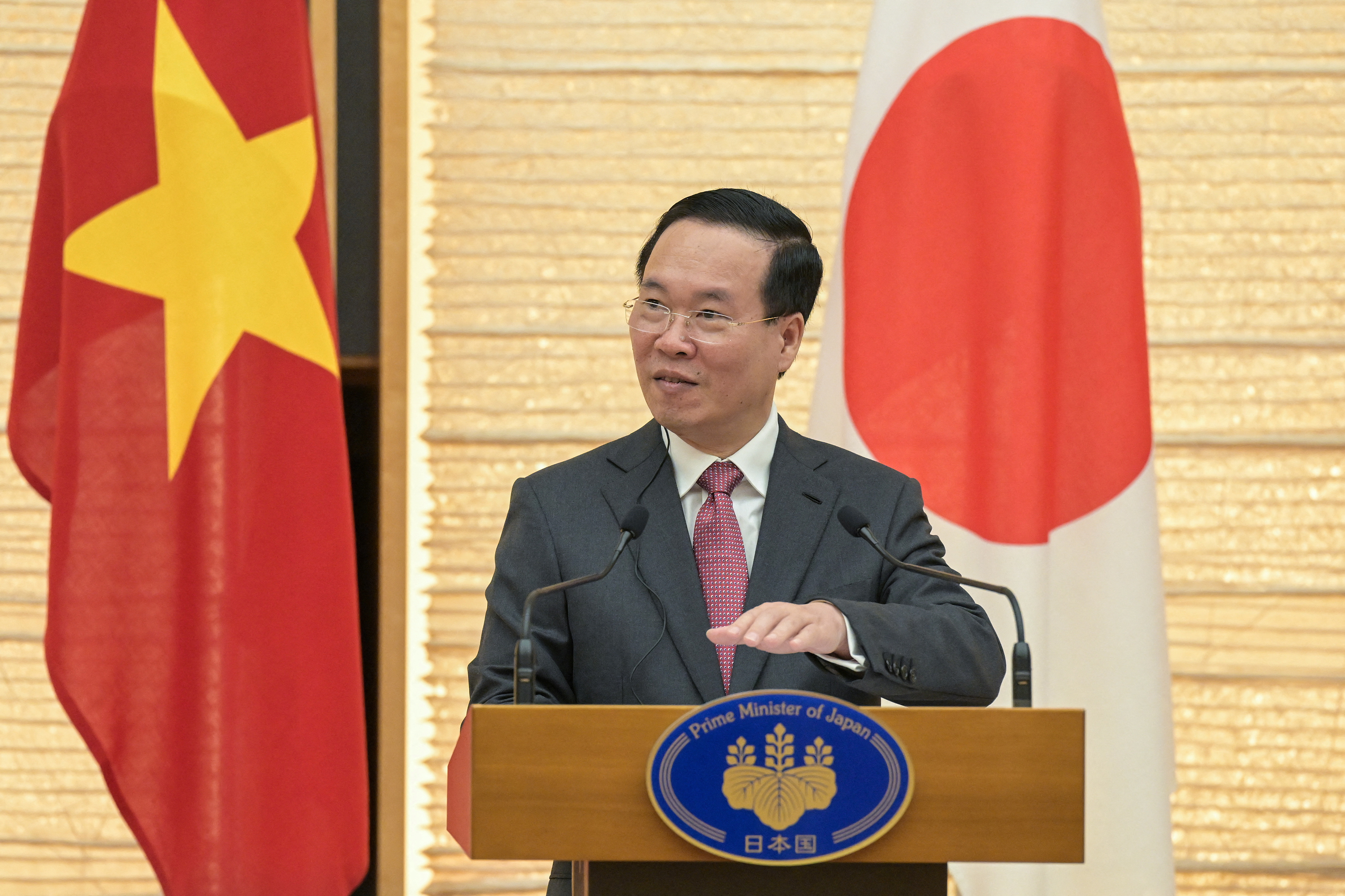A Top Down Approach!
March 30, 2024 | Expert Insights

President Vo Van Thuong’s resignation makes him the latest senior official to resign amid a Communist party crackdown that is raking through Vietnam’s top leadership. Losing two presidents in a year, along with several other political purges, has raised questions about stability in a country that has so far been known for its political stability since its reunification.
The silver lining is that the purge could potentially help clean up corruption at the top levels and pave the way for improved government and revitalized leadership. Yet, it could jeopardize the nation's favourable investment and economic growth.
Background
Vietnam's one-party communist state has no single paramount ruler, although the Communist party chief is the most powerful. In its unusual collective leadership structure, top authority is shared between four pillars - the party secretary, the president, the prime minister, and the house speaker.
The anti-corruption purge has been led by the longstanding General Secretary of the party - Nguyen Phu Trong, widely considered one of the country’s most powerful figures. The corruption case against former President Thong allegedly revolves around fraud and bribery charges. However, given that the case is an old one, the investigation is suspected to be driven by political motives.
It is worth noting that bribery and embezzlement are pervasive in Vietnam across different sectors. In addition to low-level bribery, such as permit applications and other routine public services, higher-level embezzlement episodes involving vast sums also prevail.
Against the backdrop of the U.S.-China trade war, Vietnam, with its low-cost labour and stable image, attracted investors and companies who turned to it as China became a more uncertain and less convenient option. Vietnam gained 32 per cent more foreign investment in 2023 as companies sought to diversify their risk. Clearly, the inflow of FDI has also acted as a catalyst for corruption at high places.

Analysis
The Vietnamese government could face an uncertain political vacuum with the next election a way away in 2026 unless the shake-up eventually results in lasting leadership. Party factionalism could make it a contentious process. The Vice President will be the acting president until the parliament chooses a new one.
According to the Singapore-based Institute of Southeast Asian Studies (ISEAS) - Yusof Ishak Institute, the purge has reduced graft (misuse of public position for personal advantage) to some extent. Yet, it has also unsettled the bureaucratic process and reduced the willingness of private businesses and investors to engage with Vietnam.
The anti-corruption campaign is popular with the public. While state corruption is not unique to Vietnam, its lack of free media and regular elections combined with one-party rule don’t allow much room for criticism of the state and unearthing corruption. The purge, called “blazing furnace”, could be a way to address this accountability issue and provide an outlet for public grievances, even if there are political motivations involved.
Trong, a party conservative and ideologue, originally launched the initiative to reassert the party's socialist principles and "morality". It struck down thousands of party and government officials and private business titans. The campaign aimed to sweep away non-ideological officials who joined mainly for advancement and pecuniary gains. It looked to halt the "haemorrhage of state money", as an article in the Diplomat (November 17, 2023) describes it.
It also sought to change the existing dynamics between the Communist Party and the private sector, wherein party members served as enablers for private individuals to enrich themselves and advance their businesses. The idea was to keep the private sector in check and intimidated, not hand-in-glove with the party.
Further, in light of Vietnam's rapidly growing economy, clearing out corruption in the upper echelons may be all the more important as avenues for corruption multiply and the scope for embezzlement expands. As foreign businesses look to increase their access to Vietnam's economy through trade, investment, or manufacturing, government officials may have more opportunities to misuse their positions and discretionary power.
Yet, the turbulence could spook investors and affect the nation's status as a leading funds destination in the region. Vietnam's export-oriented economy has welcomed multinationals like Apple and Samsung, which have set up factories and helped build its manufacturing capabilities.
Assessment
- The party purge could help sweep out the rot of corruption at a crucial time as Vietnam’s thriving economy, benefitting from business diverted from China, also faces more opportunities for graft.
- The party will have to make its cleanup process more transparent with a legal, due process framework to back it and make its anti-corruption drive more legitimate.
- However, the crackdown used as a tool for factional infighting could jeopardize political stability, slow down bureaucratic decision-making, and disrupt Vietnam’s steady economic growth.








Comments